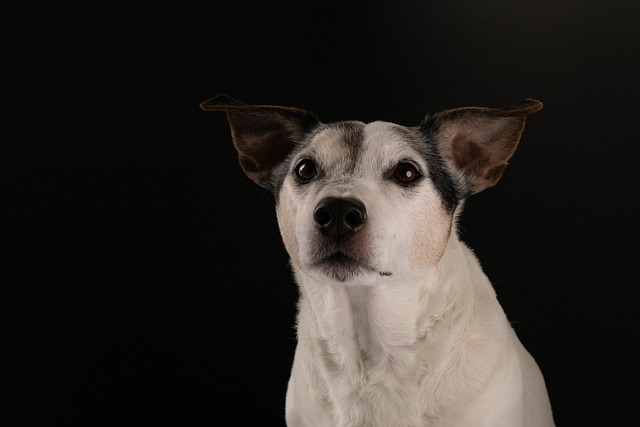
How to unclog a dogs stomach?
When a dog that is usually lively and active suddenly becomes listless, with a bulging abdomen and even vomiting frequently, the distressing appearance makes every owner anxious.
When we happily welcome a dog into our home, it becomes an irreplaceable friend in our lives, giving us pure love and companionship. We look forward to taking walks with them in the park, lounging lazily together in the afternoon, and sharing countless wonderful moments. However, behind this seemingly peaceful daily life, intestinal parasites are like hidden undercurrents, quietly threatening the dog's health and possibly casting a shadow over the originally warm scenes.
There are various types of intestinal parasites, and they harm the dog's health in different ways. Roundworms are a major enemy of puppies' health. These long, thread-like parasites are often active in the intestines of puppies. Since the immune system of puppies is not yet fully developed, the roundworm larvae in the mother dog's body can easily be passed to the puppies through the placenta or milk. Once they "settle down" in the puppy's intestines, the roundworms start to voraciously absorb nutrients, competing with the puppies for the nutrients needed for growth. Puppies that should have been growing vigorously may experience stunted growth due to the presence of roundworms. They are no longer chubby and lively. Their bodies gradually become emaciated, and their fur loses its luster, becoming dry and messy. The once energetic playtime is replaced by a listless state. How can the owner not feel distressed when seeing the puppy struggling like this?
The way tapeworms infect dogs is rather special. Dogs usually get infected by swallowing fleas or other intermediate hosts carrying tapeworm larvae. Tapeworms attach to the dog's intestinal wall, not only greedily plundering nutrients but also causing damage to the intestinal mucosa. This will trigger a series of digestive problems, and diarrhea is one of the common symptoms. When the owner cleans the dog's feces and finds white segments similar to rice grains, it is highly likely to be tapeworm segments, which means the dog is suffering from tapeworm infestation. Seeing the dog listless due to intestinal discomfort, the owner is filled with worry and anxiety.
 Hookworms should not be underestimated either. When a dog comes into contact with contaminated soil, hookworm larvae can burrow into its body through the skin, or the dog may be infected by ingesting contaminated food or water. After entering the intestines, hookworms use their special mouthparts to firmly attach to the intestinal wall and suck the dog's blood. As the hookworms continue to suck blood, the dog will gradually show symptoms of anemia. The dog, which was originally full of vitality, will have pale gums and significantly reduced activity. It will be out of breath after a little exercise. In severe cases of anemia, it can even be life-threatening. Looking at the dog's weak appearance, the owner is filled with self-blame and helplessness, blaming himself for not detecting the dog's health crisis in time.
Hookworms should not be underestimated either. When a dog comes into contact with contaminated soil, hookworm larvae can burrow into its body through the skin, or the dog may be infected by ingesting contaminated food or water. After entering the intestines, hookworms use their special mouthparts to firmly attach to the intestinal wall and suck the dog's blood. As the hookworms continue to suck blood, the dog will gradually show symptoms of anemia. The dog, which was originally full of vitality, will have pale gums and significantly reduced activity. It will be out of breath after a little exercise. In severe cases of anemia, it can even be life-threatening. Looking at the dog's weak appearance, the owner is filled with self-blame and helplessness, blaming himself for not detecting the dog's health crisis in time.
Whipworms mainly parasitize in the cecum and colon of dogs. After being infected with whipworms, the intestinal mucosa becomes inflamed, and the dog suffers from unbearable abdominal pain and frequent diarrhea. The dog often curls up in the corner due to abdominal pain and makes faint whimpering sounds. Persistent diarrhea causes the dog's body to dehydrate, further weakening its resistance. Over time, the immune system becomes more and more fragile, making it very easy to trigger other diseases and fall into a vicious cycle. Standing by and watching the dog endure the pain, the owner doesn't know what to do for a moment and can only be anxious.
The impact of intestinal parasites on dogs is not limited to the physical level but also reflected in their behavior. Dogs infected with parasites may be restless due to physical discomfort and frequently lick their anus to relieve the itching. Some dogs may even develop pica and swallow non-food items. This is the body's distress signal to the owner, reminding the owner to pay attention to its health condition.
As dog owners, we must not turn a blind eye to the threat of parasites. It is crucial to regularly deworm the dog internally. According to the veterinarian's advice, combined with the dog's age, living environment, and infection risk, choose the appropriate deworming medicine and feed it strictly according to the dosage. At the same time, keeping the dog's living environment clean should not be ignored. Regularly clean the feces, prevent the dog from coming into contact with contaminated soil and water sources, and maintain a clean living space, which can greatly reduce the risk of parasite infection.
Dogs give us love and companionship without reservation. When they are attacked by intestinal parasites, we should use our professional knowledge, careful care, and endless love to protect them. Every deworming and every cleaning of the environment are manifestations of our deep love for the dog. Let's take action to build a health defense line for the dog, help them stay away from the trouble of parasites, accompany us for a long time, and spend more happy times together.

When a dog that is usually lively and active suddenly becomes listless, with a bulging abdomen and even vomiting frequently, the distressing appearance makes every owner anxious.

When a pet dog has a fungal infection, the owner is often extremely anxious and eager to know how long it will take for the dog to recover. This is not only related to the dog's health but also tugs at the owner's heart.

When we gently stroke the ears of our pet dogs, feel the soft touch, and watch them enjoy this tenderness, our hearts are filled with warmth. However,

When the furry little puppy wagged its tail and stumbled towards us, its innocence and dependence instantly melted our hearts. However, when we find that the little guy who is usually lively and energetic suddenly starts to have diarrhea,

When we stroke the soft fur of dogs, watch them wag their tails happily, and enjoy the warm time together, our hearts are always filled with happiness.

When we see the dog squatting in the corner, straining hard but having difficulty defecating smoothly, and its originally lively eyes full of discomfort and helplessness,